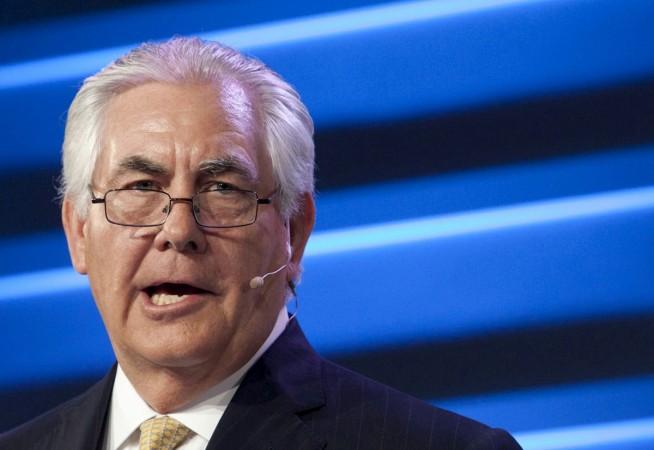
United States President-elect Donald Trump's nominee for Secretary of State, Rex Tillerson, on Wednesday said that China should not be allowed access to the South China Sea islands. Tillerson's comments could potentially worsen the country's relationship with China and lead to a serious confrontation.
China sets up weapons system on artificial islands in South China Sea: US think tank
During his confirmation hearing before the US Senate Foreign Relations Committee, Tillerson said that China's construction and installing of military assets in the South China Sea was almost similar to "Russia's taking Crimea" from Ukraine.
"We're going to have to send China a clear signal that, first, the island-building stops and, second, your access to those islands also is not going to be allowed," Tillerson responded when asked if he would take a stricter stand towards China. He, however, did not elaborate on the potential steps which could be taken to deter China's intrusion in the South China Sea reefs.
The South China Sea dispute involves island and maritime claims in the region among several sovereign states around the area, including China, Taiwan, Malaysia, Philippines, Brunei and Vietnam. Many international non-claimant nations, however, want the South China Sea to remain as international waters considering a high proportion of the world's trade passes through the region.
A United States think thank last month had cited satellite images and said that China was installing a weapons system on these artificial islands. The organisation said that the weapons system installed on the islands include anti-aircraft and anti-missile systems. The Asia Maritime Transparency Initiative (AMTI) at the Center for Strategic and International Studies has said that it has found evidence of a weapons system on the islands despite China claiming that it did not intend to militarise the region which falls on a strategic trade route.
Tillerson, during his confirmation hearing, also said that the US needed to reaffirm its commitment to Taiwan. However, China considers Taiwan a renegade province. Last month, Donald Trump had broken a 37-year precedent by calling the Taiwan leader. The precedent limits direct talks between a US president or president-elect and the leader of Taiwan, an island state off the Chinese coast. No US president has spoken directly to a Taiwanese leader ever since former president Jimmy Carter announced full diplomatic relations with the People's Republic of China and ended relations with Taiwan.

















